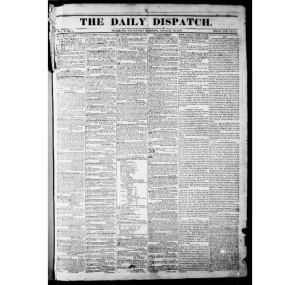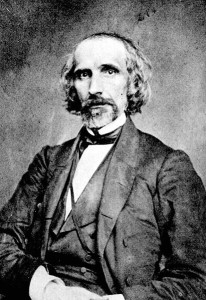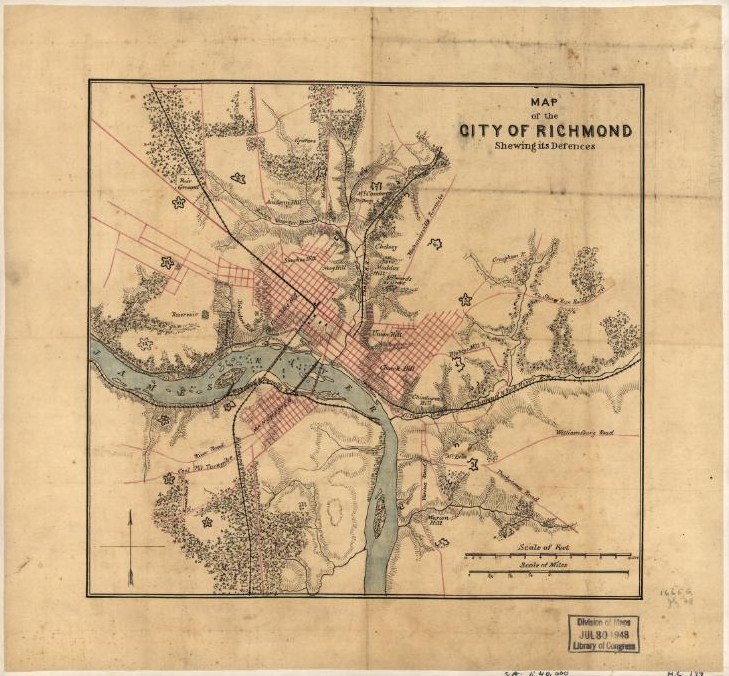From the Richmond Daily Dispatch April 2, 1863:
Give your child a Newspaper.
–A child beginning to read becomes delighted with a newspapers, because he reads of names and things which are very familiar, and will make progress accordingly. A newspaper in one year is worth a quarter’s schooling to a child, and every father must consider that substantial information is connected with advancement.
A mind occupied becomes fortified against the ills of life, and is braced for any emergency. Children amused by reading and study are, of course, more considerate and more easily governed. How many thoughtless young men have spent their evenings in a tavern or grog shop who ought to have been reading! How many parents who have not spent twenty dollars for books for their families, would have given thousands to reclaim a son or daughter who had ignorantly and thoughtlessly fallen into temptation.
Of course, in 1863 Richmond children would have been reading a good deal of slave culture propaganda. The Library of Congress chronicles the pro-slavery stance of Dispatch publisher James A. Cowardin
It seems somehow ironic that this article was published on the same day as the Richmond Bread Riot. I scanned ahead about a week in the Dispatch but not notice any obvious reports on the April 2nd disturbance. As the Encyclopedia Virginia points out:
Although the riot was over in two hours, it had shocked locals. Many believed that the rioters did not “suffer real want,” while others accused outside agitators of causing the fracas. Confederate secretary of war James A. Seddon implored the local press not to publish accounts of the disturbance for fear it would fuel Union propaganda and undermine morale at home. To some extent Seddon succeeded, but Union prisoners of war in Richmond reported what they saw and the New York Times ran a front-page article about the bread riot on April 8, 1863.
This story struck a chord with me. As a kid I used to listen to Syracuse University football games on Saturday afternoon and read all about it in the next day’s newspaper. I have a faint memory of the incandescent light bulb going off – oh, that’s how you spell Csonka. And yes, in my lifetime paper newspapers have become so passe.



